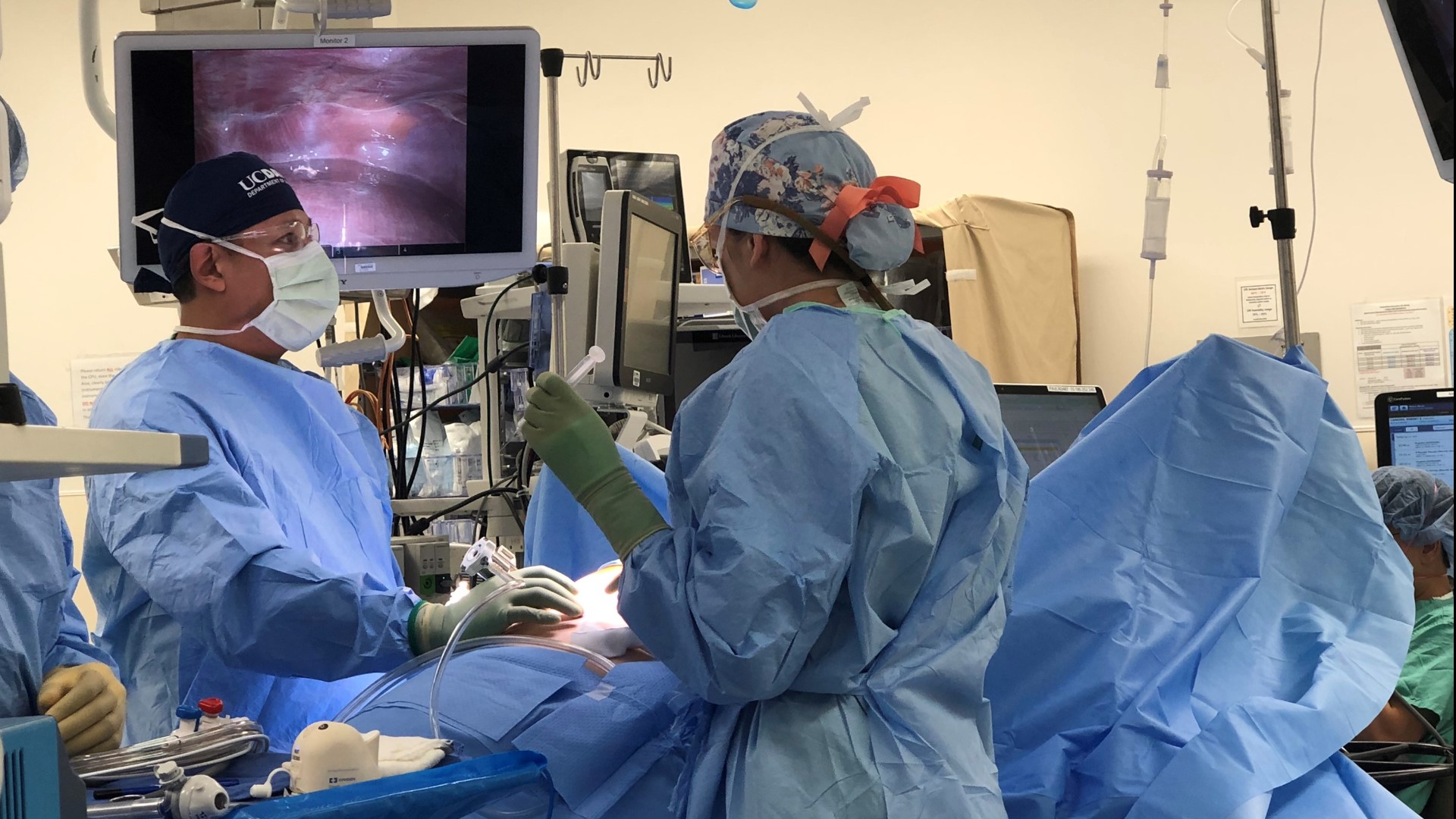SACRAMENTO, Calif. — Lung cancer screening rates, in general, are shockingly low, with only about 1% of Californians eligible for lung cancer screening actually getting screened.
However, UC Davis' Comprehensive Cancer Center is working to change that.
80% to 90% of all lung cancers are caused by smoking. However, people don't have to smoke to be at risk.
"Unfortunately, California is the worst state in screening," said Dr. Chinh Phan, director of Interventional Pulmonology at UC Davis Health. "We screen only 1% of the eligible patients, and the national average is only 5.8%.
Dr. Phan said people can develop lung cancer through their genetics and family history, referred to by experts as driving mutations. It's why experts at the UC Davis Comprehensive Cancer Center say screenings can be lifesaving.
"If you combine all the deaths from breast cancer, colorectal cancer and prostate cancer, lung cancer is still the number one killer of all the cancers," Dr. Phan said.
Treatment breakthroughs, like a new robotic procedure at UC Davis, offers diagnosis and removal of lung cancer in a single surgery.
"Anytime you go to see a doctor, it has the potential to be nerve-wracking because you might get some unfortunate news. But that unfortunate news that you might get may be a blessing in disguise," Dr. Phan said.
The screening itself is relatively easy.
"The CT is noninvasive. They lay down in the scanner, get the CT and then go home," Dr. Phan said.
Based on what the doctors see, they come up with a treatment plan, if needed, for each unique patient. With the five-year lung cancer survival rate at just 25%, every test counts.
"If we screen more, I truly believe that we can get that five-year survival up to the 50s, 60s, 70s and hopefully 80s - then 90% one day like it is for the other cancers.
The experts at UC Davis also say Black men are 11% more likely to be diagnosed with lung cancer and nearly 10% more Black men die from the disease.
There are also new lung cancer screening guidelines recommended by the U.S. Preventative Services Task Force that will help address health disparities and catch more cases of lung cancer earlier. More information is available HERE.
WATCH ALSO:



















